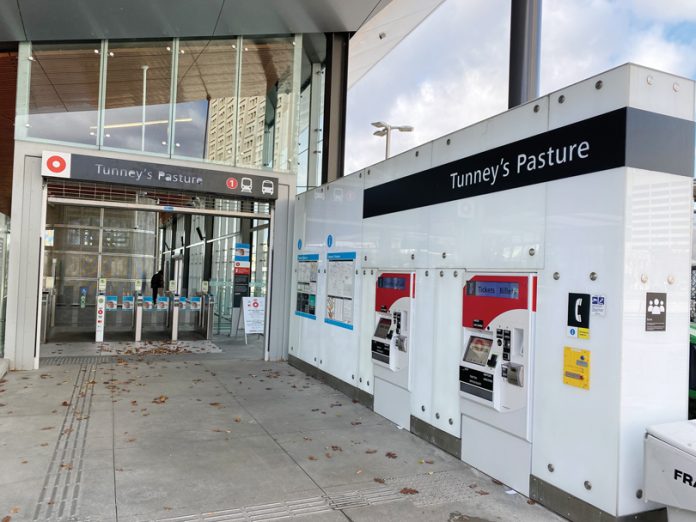By Alvin Tsang
The Ontario government is launching a public inquiry—an official investigation ordered by a government body—into the procedures and events surrounding Ottawa’s light rail transit (LRT) system.
The office of Ontario Minister of Transportation Caroline Mulroney issued a statement Nov. 17.
“The issues plaguing Stage 1 of the Ottawa LRT have been unacceptable and disappointing. As a funding partner for the project, we need certainty that the City of Ottawa will be able to successfully deliver the remaining phases of work for this project. Ottawa transit riders deserve and expect this certainty as well,” the statement reads.
“To get to the bottom of these issues facing the Ottawa LRT, our government will be launching a public inquiry,” the statement continues. “Our goal is to get this up and running as soon as possible. In the coming weeks, we will establish the scope of the inquiry and its terms of reference, with the intention of receiving a report on what has transpired and recommendations to prevent this from happening again.”
The LRT opened in September 2019. Over the last two years, the LRT experienced a 54-day shutdown, five derailments and many stoppages. The shutdown was caused by the largest derailment to date this fall, when a loose gearbox caused damage to the car, tracks and surrounding infrastructure on Sept. 19. The other derailments were caused by sinkholes, damages to the wheels, poor maintenance on tracks, and other issues.
More recently, a stopped train delayed 50 passengers for 55 minutes on Nov. 18. There was another train stoppage between the uOttawa and Hurdman stations on the night of Nov. 23.

Sarah Wright-Gilbert, citizen transit commissioner for the City of Ottawa, said she believes that the public inquiry is a necessary step in restoring public confidence and trust in Ottawa.
“The people of Ottawa have not only lost trust in our public transit system, specifically the LRT, but also in our elected officials and municipal government,” Wright-Gilbert told Kitchissippi Times. “A public inquiry is absolutely necessary to restore the public’s trust in both entities.”
Ottawa’s Confederation Line, costing $2.1 billion, stretches over a 12.5 km track and 13 stations. For two years now, it has replaced bus routes coming in and out of the downtown core. The line now serves as Ottawa’s primary transit system.
The provincial government is a funding partner of the LRT system. Currently, there are remaining phases of the project. Construction is already underway for the $4.6-billion Phase 2 (extending to Baseline, Moodie and Trim), and the $5.6-billion Phase 3 (extending to Barrhaven and Kanata) will follow.
“The structure of the public-private-partnership (P3) agreement with Rideau Transit Group, both for the construction and maintenance, is shrouded in secrecy and this does nothing to encourage public confidence,”
Wright-Gilbert said.
Transit riders, local politicians and now provincial politicians are demanding answers about the unreliable service and dysfunction.
“The $2.1 billion first phase of the LRT was built using public money at the municipal, provincial, and federal levels, and the public deserves to know how we got to where we are today, and who was involved in the decision-making,” Wright-Gilbert said. “A public inquiry can provide these answers.”
